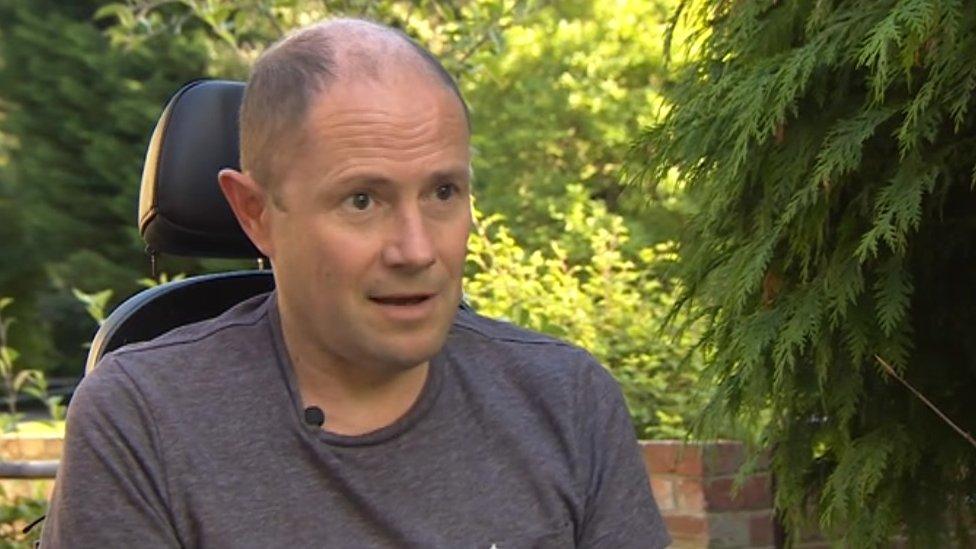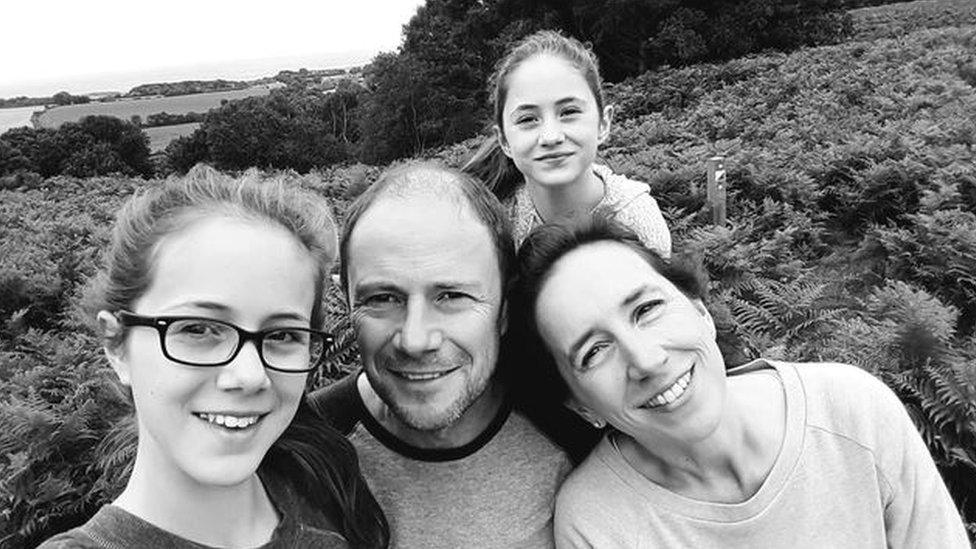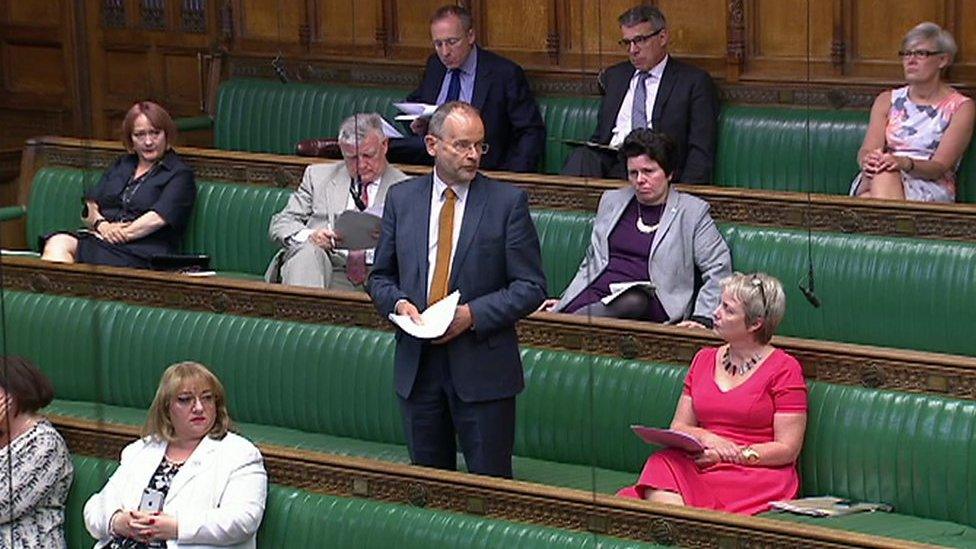Assisted dying: Terminally ill man loses High Court case
- Published

Phil Newby said the "cruel" law does not allow people with incurable illnesses to have a "dignified and civilised ending"
A terminally ill man challenging the law on assisted dying has lost his case in the High Court.
Phil Newby, 49, from Rutland, was diagnosed with Motor Neurone Disease (MND) in 2014 and cannot walk or use his hands and lower arms.
He raised £42,000 for the legal challenge as he wants people to have a right to choose a "civilised ending".
But High Court judges said the court is "not an appropriate forum for the discussion of the sanctity of life".
It is illegal in England and Wales to encourage or assist a death and holds a prison sentence of up to 14 years.
Mr Newby's case proposed that judges should thoroughly examine a large amount of expert evidence - including from countries where assisted dying is legal - before deciding whether the law is incompatible with his human rights.
His lawyers told a hearing in London in October that he faced an "inhumane and intolerable" deterioration.
They said Mr Newby will appeal against the court's decision.

Mr Newby's family said they support his attempt to change the law
Lord Justice Irwin, sitting with Mrs Justice May, said: "It is impossible not to have very great sympathy for the situation in which Mr Newby finds himself.
"His clear and dignified statement compels admiration and respect."
In a statement after the ruling, Mr Newby said: "The High Court's decision not to hear my case, and not to test the evidence for and against assisted dying, is disappointing to me and the many hundreds of others who support my case.
"With their support, I will be fighting on to bring attention to a law that is widely thought to be cruel, so that it can be replaced by something more humane and compassionate."
Care Not Killing, a group which opposes changes in the law, welcomed the ruling.
Alistair Thomson, from the organisation, said: "Parliaments across the UK have looked at this issue more than a dozen times since 2003.
"And in both Scotland and Westminster they have rejected any changes on grounds of public safety.
"If you change the law, vulnerable people will feel pressured into ending their lives."
If you have been affected by any of the issues in this article, you can visit the BBC Action Line.

Follow BBC East Midlands on Facebook, external, Twitter, external, or Instagram, external. Send your story ideas to eastmidsnews@bbc.co.uk, external.
- Published23 October 2019

- Published4 July 2019
